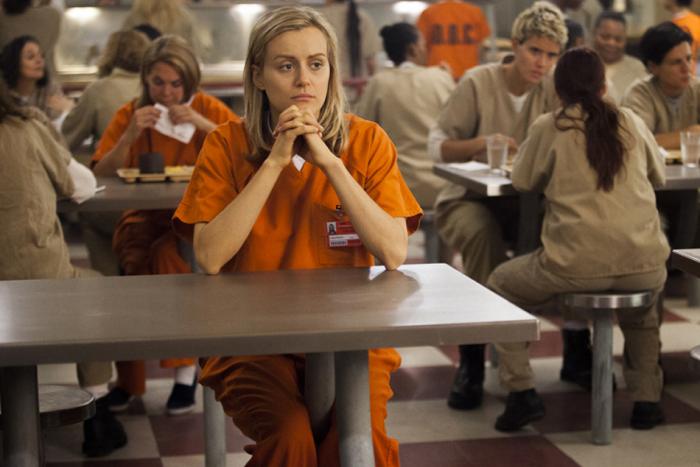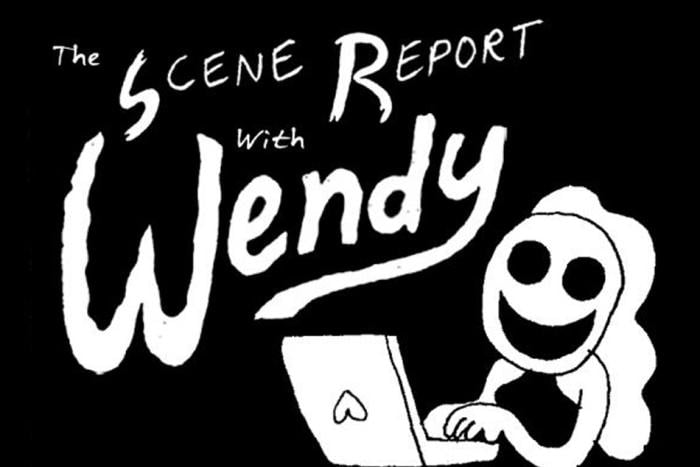When did the ’60s end? I asked my dad the other day, and he told me he woke up on January 1st, 1970, and, somehow, just knew they were over. I checked Wikipedia and, turns out, reasonable distrust of crowd-sourced knowledge emporiums aside, he’s technically correct. And yet, the “When Did The ’60s End?” industry continues apace, aimless and overwrought, one rarity-filled box set and dried-out ghostwritten memoir at a time. The amount of wordage that has been devoted to Altamont has become my Altamont; those who compare Millennials negatively to Baby Boomers in terms of self-regard and navel-gazing have a special place in a hell that is designed to look and feel like Peter Fonda’s teeth in The Limey. The ’60s are the Hundred Years’ War of decades. (Other eras guilty of this: The ’70s; the ’80s; every other one.) But, given that the death rattle of a decade is one of the sonar-ic tricks we use to find our way through the cultural darkness, to make sense of pop entropy, shall we at least entertain the idea that sometimes a calendar is not enough?
For argument’s sake, what about 1973, a year that saw the release of The Who’s Quadrophenia, Led Zeppelin’s Houses of the Holy, and Alice Cooper’s Billion Dollar Babies? A quick refresher: Of the three, Babies is the only one that doesn’t sound like it’s currently encased in amber in a forgotten museum wing somewhere. Well, Quadrophenia might hold up, but seeing as nobody has ever actually listened to it all the way through, we’ll never know. Houses of the Holy is, of course, a work of artistic genius, a masterful synthesis of … oh, hell, I don’t know; I can’t abide this wailing blues Dungeons and Dragons hooey. You love it, though, and I’m glad—I want you to be happy. Billion Dollar Babies, however, sounds timeless. It’s a Sgt. Pepper’s that I actually want to listen to. If it just had disco and Squeaky Fromme, it would pretty much encompass everything I like about the ’60s clashing heroically and heroinically with the 1970s.
I indulge in this reprehensible bout of trolling only because I just finished What You Want Is In the Limo, a the-’60s-ended-here-and-Lady-Gaga-immediately-followed tale of these three, the biggest touring rock bands in 1973, by Michael Walker. In it, we ride along for stretches of stadium dates by these acts as they cross the United States, engaging in those all-American pastimes of statutory rape and contempt for the hotel cleaning staff. The thrust of the book (which, by the way, I enjoyed, lest my meanderings indicate otherwise) is that these bands’ grandiose tours—with their customized leased jets and exorbitant riders that would induce the least class-conscious observer among us to commit regicide—ushered in a new era of rock behavior, for both the artists and their audiences. The artists were rotten, surely, but they seemed to be matching the new nastiness of their younger and younger pot- and acid-addled fans, many of whom were clearly attending shows as much for the experience of attending shows as they were for the music that gave the concerts their purpose. Too young to know the euphoria of the ’60s, these younger siblings took the hangover and ran with it, let it envelop them, threw the empties on the stage.
It was all of this, you see—the callow youth running wild on both sides of the velvet rope, the kid-diddling empty-headed nihilism of what would come to dominate every “Two for Tuesday Rock Block” on FM radio until Middle America discovered black people—that constituted the Official End of the ’60s. With that spirit in me, then, I ponder, for your edification and mine, what was the End of the Aughts?
Well, first things first: What was the end of the ’90s? Depending on who you ask, it was a) when the Twin Towers fell, b) when irony was declared dead by the guy whose main claim to fame was keeping Dominick Dunne employed well past his expiration date, or c) the formation of Transplants. All good answers. I say the ’90s ended when Nevermind came out. Prove me wrong.
But, sure, yes, what of the Aughts? One could argue they’re still going on, what with the long war, the longer gilded age, the ongoing disappointment in Obama,11That is, before a Clinton or a Bush takes over again and we go, “Oh. Right. These fucking guys again. Is Sasha 35 yet?” and the seemingly endless Remembering of the Maine all over Muslims worldwide. Let’s say the Aughts, in historical terms, will end when they finish building the Freedom Tower. So, you know, never.
I, however, not really possessing the intellectual maturity to discuss Big Things, will stick to the musical end of the decade. What was our Let It Bleed/big-tour-trifecta of ’73/Disco Demolition Night? Three obvious contenders are, of course, the death of Michael Jackson, Lady Gaga releasing The Fame Monster, and Infernus winning the legal rights to the band name Gorgoroth, but none of these huge events seem quite hefty enough to crush and bury the zeitgeist. Nor was it the remake of “We Are The World” (performed at the, ugh, Winter Olympics), though it, too, is a fine choice: The Aughts were nothing if not a relentless exercise in white paternalism and the benign, twisted face of empire. Anyway.
Was it Arcade Fire winning a Grammy for The Suburbs? That would certainly work. It’s consistent with the decade’s theme of the out-of-touch elite making ill-considered choices on behalf of the whole, and it even involves smug European-types getting America so wrong that it makes you want to defend the whole basket of dummies. [Editor’s note: Canadian-types, technically.] LCD Soundsystem’s last show? Sad, but they’re friends of friends and I like them, so therefore they’re not much fun to write about (welcome to music journalism). The death of Type O Negative’s Peter Steele, who was both ahead of the vampiric curve and, thanks to his 1996 appearance in Playgirl, presaged both MySpace and selfies? If he had done more in the first ten years of the 21st century, I’d alert the editors at GQ and Vanity Fair that the issue was settled and that all we needed was consensus. Unfortunately, Steele wasn’t terribly active during the era in question, so his death, while tragic and Kennedy-esque in the endless discussion of his cock that followed, is not the death knell of the Aughts.
What do we do with such a diffuse decade? To further complicate things, as the musician Shilpa Ray pointed out when I attempted to crowd-source (yep) the issue on Facebook, music is no longer central to our culture. Not even close. There will never be a Beatles to start a decade or a Rolling Stones to end it. Disco and punk are one and the same in their marginalization, even as they’ve both, luckily, managed to infuse themselves into almost all other genres of music. So, since I’m too much a coward to try to pick a political moment and too full of contempt for mass reality-based culture, I’m left with having to choose a moment at random and hope that history will support me. I figure my chances are as good as the next guy’s. Please send book deals to Hazlitt.
So, here we go. The end of the Aughts, the shocking bang-whimper-end of our innocence and cynicism, the moment that pulled it all together and tore it apart because the center, man, the center could not hold, was, is, and forever shall be … when Digital Domain Media Group, the company that produced the Tupac Shakur hologram for the 2012 Coachella, declared bankruptcy. In this perfect moment, hubris, empty gestures, unworkable business models, and complete, utter pointlessness converged into one huge blip on the day’s Internet snark radar: People commented like motherfuckers, partisans of smug pedantry—from ’90s hip hop nostalgics to “Coachella used to be cool…” indie fops to scummy San Francisco tech yuppies—felt appropriately superior, and a bunch of innocent people lost their jobs. Can’t get much more “First Decade of the 21st Century” than that.
Don’t believe me? Well … actually, that’s probably for the best. It’s possible that not only are all of my preceding pronouncements idiotic, but that such exercises always have been. It’s a fun parlor game to try to assign cultural signposts to specific dates, but it is, of course, meaningless. People bemoan the diffuse nature of culture but, really, it’s a blessing (or it’s neutral, but it was always there). Homogenization was always a lie if you weren’t part of the dominant narrative—the one determined solely by white record labels and white writers. That’s not just “political correctness,” either: The average funk fan gave zero fucks about The Who. Why not say the ’60s ended with the first episode of Soul Train shown in syndication? Kennedy’s shattered head hitting concrete to Don Cornelius taking the stage nationwide: Now that’s a solid decade. At the very least, it’s as good as any other.
You know when the ’60s ended? When the ’60s ended. The ’70s ended at the end of 1979. The Aughts ended when I got off work on New Year’s morning, 2010 (or 2009, or 2011—I’m still not really sure how that works). I’d worked all night, if I remember correctly (it was, after all, a different time), and the city had just filled my pockets for doing something of questionable worth. It was unreal and, yet, right there in front of me, a celebrity hologram staring back just as the sun rose and the streetlights went out.






